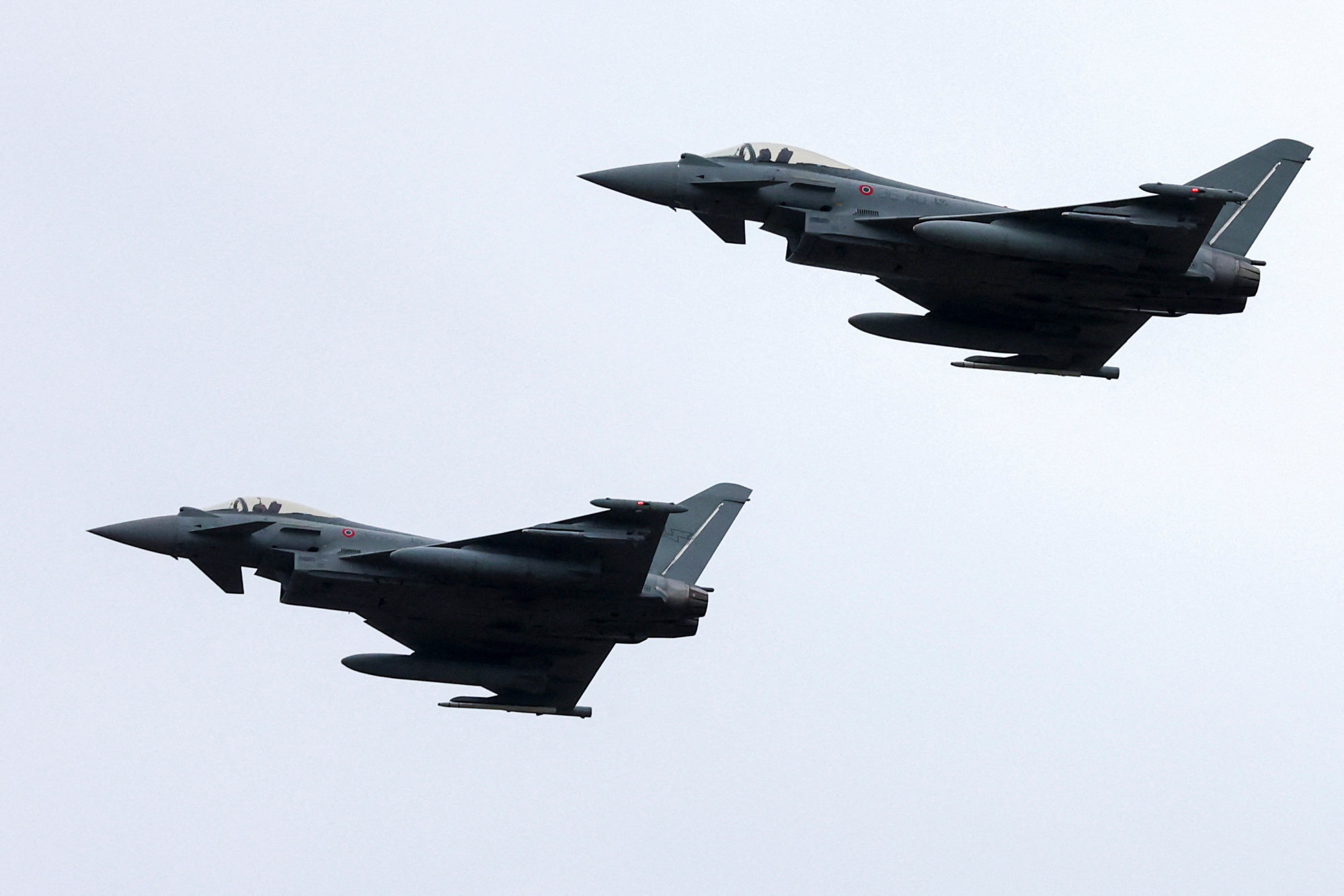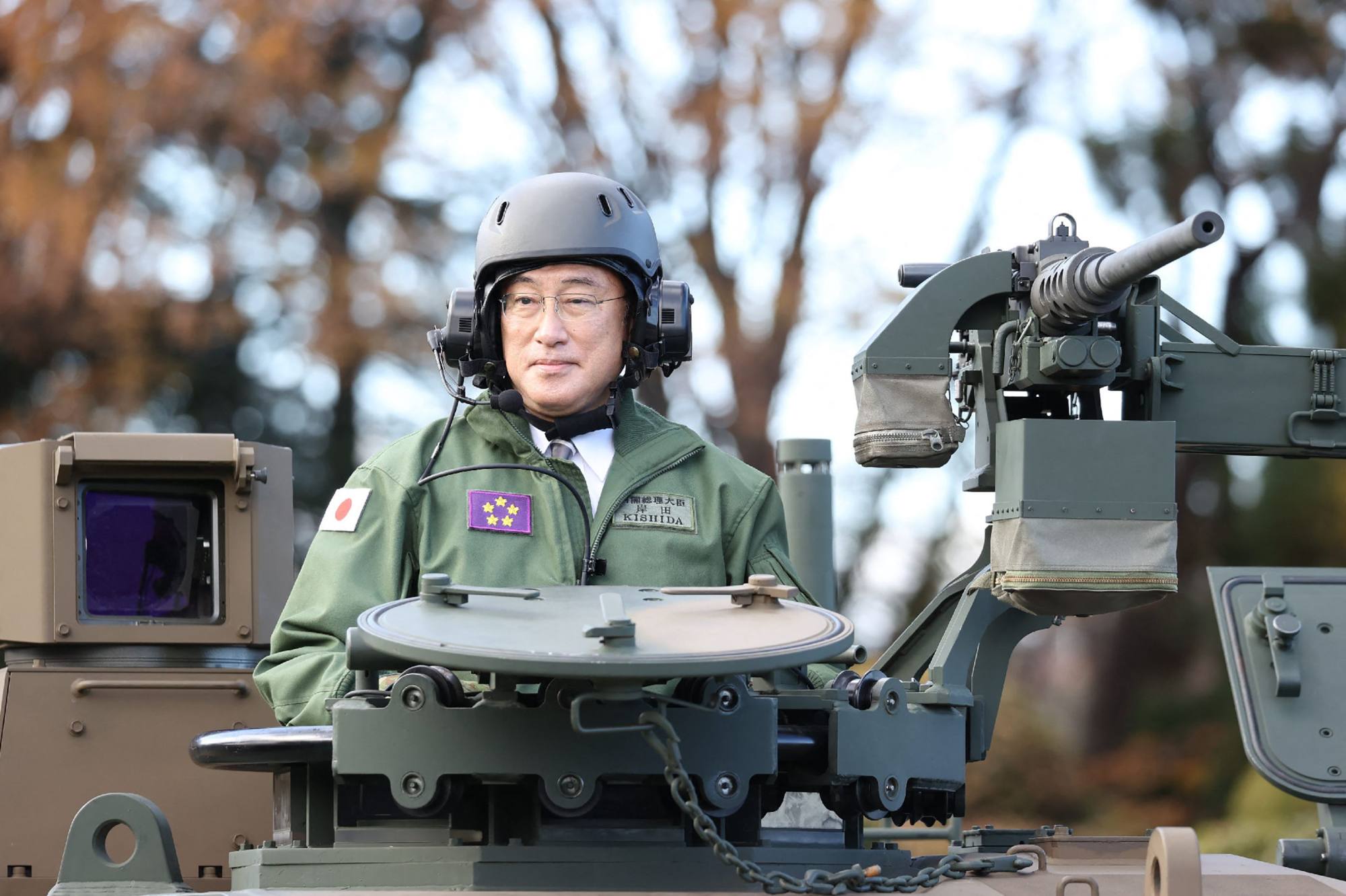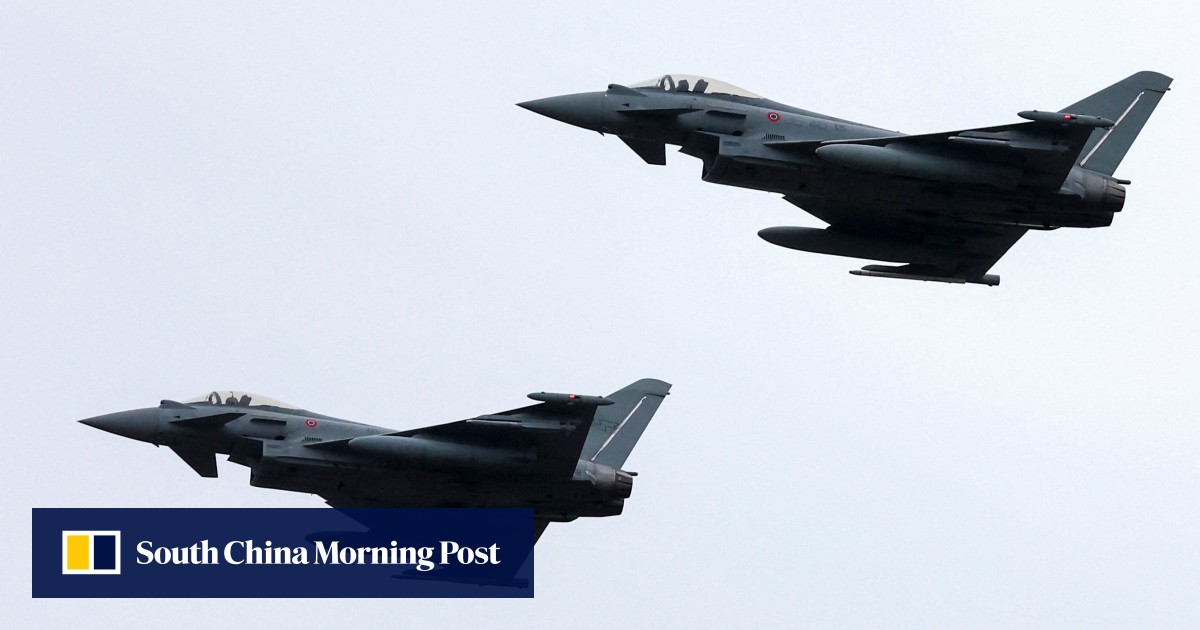The contentious decision to allow international arms sales is expected to help secure Japan’s role in the joint fighter-jet project and part of a move to build up the Japanese arms industry and bolster its role in global security.
The cabinet also endorsed a revision to Japan’s arms equipment and technology transfer guidelines to allow co-produced lethal weapons to be sold to countries other than the partners.

The decision on jets will allow Japan to export lethal weapons it co-produces to other countries for the first time.
Japan is working with Italy and the UK to develop an advanced fighter jet to replace its ageing fleet of American-designed F-2 fighters, and the Eurofighter Typhoons used by the UK and Italian militaries.
Japan’s joint fighter plan with UK and Italy ‘highlights Taiwan concerns’
Japan’s joint fighter plan with UK and Italy ‘highlights Taiwan concerns’
Because of its wartime past as aggressor and the devastation that followed its defeat in World War II, Japan adopted a constitution that limits its military to self-defence. The country long maintained a strict policy to limit transfers of military equipment and technology and ban all exports of lethal weapons.

To address such concerns, the government is limiting exports of co-developed lethal weapons to the jet for now, and has promised that no sales will be made for use in active wars.
The government also assured citizens that the revised guideline for the time being only applies to the jet and that it would require cabinet approval to change it. Potential purchasers will be also limited to the 15 countries that Japan has signed defence partnership and equipment transfer deals with.
Recent polls suggest that public opinion is divided on the plan.
Japan’s Kishida has offered to meet North Korea’s Kim Jong-un, says Pyongyang
Japan’s Kishida has offered to meet North Korea’s Kim Jong-un, says Pyongyang
In its decision, the cabinet said that the arms export ban on finished products would hinder efforts to develop the new jet, and limit Japan to a supporting role in the project. Italy and the UK are eager to make sales of the jet to defray development and manufacturing costs.
Kishida sought cabinet approval before signing the GCAP agreement in February, but it was delayed by resistance from his junior coalition partner, the Buddhist-backed Komeito Party.
The change also comes as Kishida is planning an April state visit to Washington, where he is expected to stress Japan’s readiness to take on a greater role in military and defence industry partnerships.
Exports would also help boost Japan’s defence industry, which historically has catered only to the country’s Self Defense Force, as Kishida seeks to build up the military. Despite its effort over the past decade, the industry has still struggled to draw customers.

